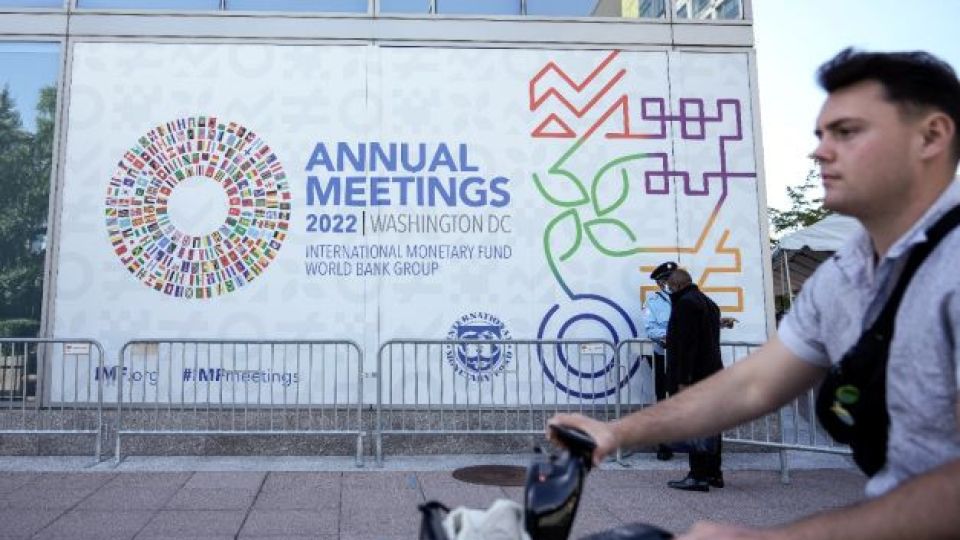November 8, 2022
JAKARTA – The world is facing unrelenting problems. Still reeling from the crisis caused by the COVID-19 pandemic, the global economy is again faced with no less serious challenges — the Russia-Ukraine war, which caused food and energy supply disruptions, and high inflation.
At the fourth high-level meeting of the Finance Ministers and Central Bank Governors of the Group of 20 (G20) members (4th FMCB) that was held on Oct. 12-13 in Washington DC, Finance Minister Sri Mulyani Indrawati described a world that is not doing well. The global economic situation is predicted to face even more challenging conditions ahead.
In fact, the IMF has forecast a potential global recession that countries need to be aware of. The signs can be seen in a skyrocketing inflation rate, weaker growth, increasing difficulty in obtaining energy and food commodities through trade between nations, climate threats and geopolitical conflicts.
The war between Russia and Ukraine has caused damage to food supply chains, especially wheat and energy, notably oil and natural gas. As a result, food, energy and fertilizer supplies have become uncertain, and their prices have increased. Oil-importing countries, especially developing economies, face the most severe threat.
But in the middle of these volatile global conditions, Indonesia remains resilient and relatively stable compared to many other countries that are facing challenging situations. We have been forced to readjust subsidy spending and take fiscal-policy measures to reduce inflationary pressure from the supply side. Fortunately, economic growth is still on target and already higher than last year or in 2020. Although inflation is rising, it is still within the target range of Bank Indonesia (BI). This strong state-budget performance has become a solid enough buffer to face the potentially stressful year of 2023 — optimistic but cautious.
The World Bank and the International Monetary Fund (IMF) estimate that as many as 31 countries are expected to come to the brink of recession next year. The crisis has forced them to ask for monetary assistance from the IMF.
We must be prepared to face the difficult conditions which could worsen next year. The world, not limited to only the G20 member countries, must always be wary of the coming recession.
How do we answer this difficult question? All members of the G20, which make up 75 percent of the world’s economy, must work closely together, meaning that developing countries should be part of the global economic-policy coordination, not only the G7 or G8 developed countries.
To realize the G20 Indonesia Presidency mission of “Recover Together, Recover Stronger”, strong leadership and collective action are needed to ensure that the lives of every citizen of the world are protected. Indonesia has shown leadership at the global level by successfully carrying out the duties of the G20 presidency. The last FMCB meeting might not have produced a communique; however, it has produced concrete actions in terms of global financing for handling global health risks and the energy transition mechanism, which will be launched near the G20 Summit in Bali.
Amid global challenges, Indonesia has tried its best to generate economic recovery and maintain world peace during its leadership. While continuing to advance domestic interests, Indonesia campaigns for poor and developing countries to have a more just and equal world order.
Indonesia’s leadership has shown that the G20, the main driver of the world economy, must be able to create harmony through a united global economic orchestration that involves all of its members. The way forward is by working together to present a symphony so that this year’s G20 leadership theme, “Recover Together, Recover Stronger” can be realized.
Global economic challenges that are very complex cannot be solved by one country through unilateral action. Every country has an important role, and what is needed more and more at this time is the spirit to help each other. Otherwise, the world will face even more severe conditions. As the economy has yet to recover after the COVID-19 pandemic, the world is now facing a severe geopolitical crisis.
The egocentric attitude shown by the parties in today’s serious conflict has disrupted the geopolitical order, which in the end, has also disrupted world economic and trade activities.
As mandated by the 1945 Constitution, Indonesia seeks to play an active role in creating world peace. President Joko “Jokowi” Widodo himself even directly flew to Kyiv and Moscow. Indonesia encourages both countries to have a constructive dialogue based on the spirit of cooperation, collaboration and mutual understanding.
At the fourth FMCB, the final meeting of the G20 financial track before the summit, a series of commitments have been made to support Indonesia’s efforts in several essential agendas in the financial sector, including those related to the global economy, international financial architecture, financial sector regulation, infrastructure investment, sustainable finance and international taxation.
Next year’s G20 presidency will be taken over by India. The hope is that what Indonesia has achieved can be continued by India. For this reason, communication between the two countries must be strengthened.
As the chair of ASEAN in 2023, Indonesia is in the position to bring the G20 agenda within the ASEAN scope, including the global funding program for post-pandemic economic recovery.
All countries must work together to solve global economic problems. The G20 cooperation forum is a beacon of hope that will help all the countries to navigate these challenging times.
***
The writer is a spokesperson for the Indonesian Finance Ministry. These views expressed are personal.

